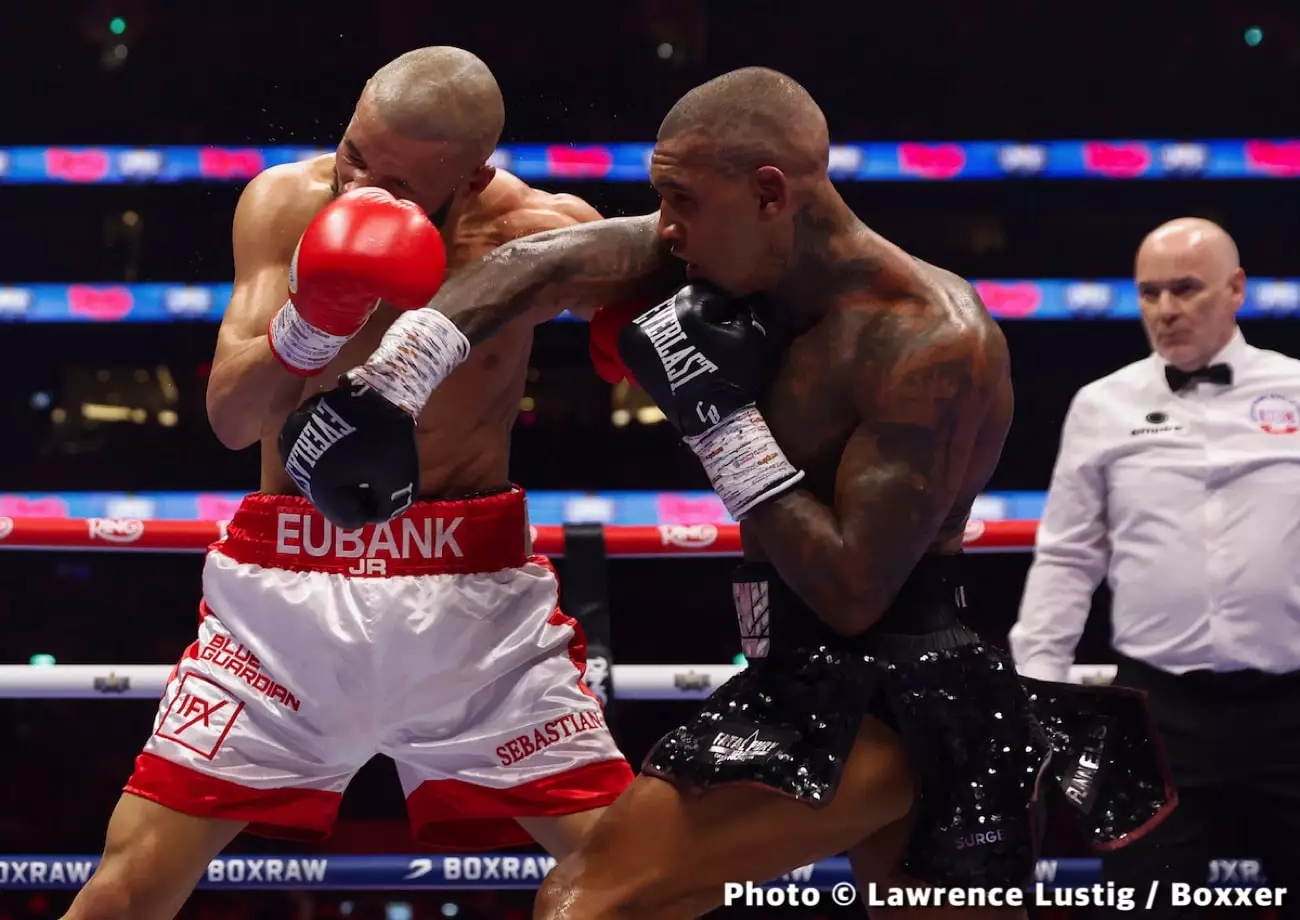In the high-octane arena of professional boxing, the intrinsic value of experiencing the spirit of battle seems to be waning. Recent performances by prominent fighters like Devin Haney, Ryan Garcia, and Teofimo Lopez have come under scrutiny, especially following their subdued outings at Times Square, New York. Observers, including fighters like Conor Benn, have raised an essential question: Do these athletes still embody the heart of a true fighter, or are they merely conserving their undefeated records at the cost of excitement and engagement in the ring?
What transpired in New York serves not only as an event but as a reflective lens into the mindset of contemporary boxers. Although the fighters entered the ring with the glitz of fame and significant financial backing—thanks to promoter Turki Alalshikh, who rewarded them handsomely—the performances fell short of fan expectations. Rather than throwing themselves into combative exchanges, they shielded themselves behind a veneer of caution, evoking concern regarding their sincerity and intent.
The Financial Incentive vs. the Fighter’s Ethos
Benn’s observations present a stark divergence between financial motivation and the warrior ethos traditionally associated with boxing. The financial stakes have skyrocketed, leading to a landscape where millions are tossed at fighters who seem more interested in keeping their pristine win-loss records than pursuing the glorious uncertainty of competitive combat. The very existence of lucrative contracts creates a paradox where fighters may prioritize monetary gains over their reputations as engaging and hardened athletes.
For instance, Teofimo Lopez’s match against Arnold Barboza Jr. resembled more of a dance than a duel, characterized by his constant retreating from an opponent who, though a light hitter, posed no significant threat. Similarly, Devin Haney maintained an overly defensive strategy, arguably out of fear associated with the consequences of engaging in high-risk exchanges. This raises an alarming trend: fighters not only shying away from danger but also becoming detached from the essence that makes boxing a celebrated sport.
A Call for Authentic Competition
The essential question that Benn poses—whether these fighters truly want to be boxers—opens up a wider discourse on the authenticity of competition itself. Is it enough to enter the ring if one is not prepared to embrace vulnerability? In contrast to the performances of these contemporary fighters, Benn reflects on his own experiences, demonstrating a willingness to take risks. His electric fight against Chris Eubank Jr. showcased not just his skill but his willingness to engage in a real fight—a trait that appears increasingly scarce among today’s elite boxers.
Loyal fans who yearn for captivating bouts are met with serious disappointment when they see professional fighters exhibit a lack of willingness to engage. When viewed through this lens, it becomes clear that boxing is not merely a competition of punches thrown or landed, but a test of will and spirit. Ariel Helwani’s comments on the atrocious statistics regarding the punches thrown during the Times Square event further emphasize the shift in what it means to be a boxer in today’s era.
The Durability Factor
Conor Benn’s confidence in his durability and willingness to take a hit encapsulates a mindset often overlooked by fighters consumed by the desire to maintain an unblemished record. The art of boxing has historically celebrated those who engage in back-and-forth exchanges, risk enduring punishment to deliver their own. A boxer’s strength lies not merely in their technique, but in the courage to stand and trade punches even when the odds seem stacked against them.
This evolution—or rather, devolution—of the sport cannot be taken lightly. In a world where fighters get rewarded for their cautiousness over their grit, there is an inherent danger of losing the raw, exhilarating nature of boxing that fans cherish. It’s vital to acknowledge that while safeguarding one’s record can serve immediate financial interests, the long-term implications for the sport and individual legacies could be detrimental.
A Future in Question
Conor Benn’s advocacy for authenticity in the ring raises critical concerns about the evolving culture of boxing. Are we witnessing a shift towards a focus on financial gain over foundational fighting principles? With each passing event, the hope remains that the next generation of fighters will not lose sight of what it means to be a true warrior in the ring. Authentic competition—where vulnerability meets courage—should find a place before the essence of boxing fades into a distant memory. The true tests of character and spirit await those willing to risk, and perhaps, it is high time for boxing to reclaim its heart.

